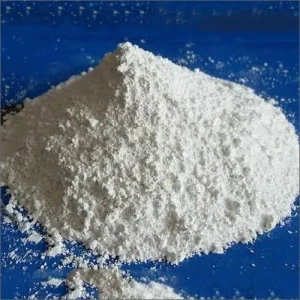Zinc sulphide (ZnS) is a versatile compound with a wide range of applications in various industries. Its unique properties make it an essential material in many technological and industrial processes.
Optical Properties and Applications
Use in Optoelectronics
Zinc sulphide exhibits exceptional optoelectronic properties, making it ideal for use in light-emitting diodes (LEDs) and laser diodes. The material's ability to convert electrical energy into light efficiently contributes to the development of high-performance, energy-saving lighting solutions.
Role in Optical Coatings
Zinc sulphide is also a popular choice for optical coatings due to its high refractive index and transparency in the infrared range. This makes it suitable for use in infrared windows and lenses, enhancing the performance of thermal imaging cameras and night-vision devices.
Semiconducting Properties
Photovoltaic Cells
As a semiconductor, zinc sulphide is used in thin-film photovoltaic cells. These cells, which convert solar energy into electrical energy, benefit from ZnS's ability to optimize light absorption and electron transport, leading to improved solar cell efficiency.
Electronic Devices
ZnS is a critical material in the manufacturing of electronic devices such as thin-film transistors used in liquid crystal displays (LCDs). Its semiconducting properties help in the miniaturization of electronic components while maintaining high performance.
Luminescent Properties
Phosphorescent Pigments
The luminescent properties of zinc sulphide make it suitable for use in phosphorescent pigments. These pigments, which glow in the dark after being exposed to light, are widely used in safety signs, watch dials, and emergency exit paths.
Scintillation Detectors
In scintillation detectors, ZnS is used to detect ionizing radiation. When radiation strikes the material, it emits light, allowing for the detection and measurement of various types of radiation.
Chemical and Physical Properties
Use in Pigments and Coatings
Zinc sulphide is a valuable component in pigments and coatings due to its high thermal stability and resistance to UV radiation. It is commonly used in paints and coatings to provide durability and protection against environmental factors.

Catalysis
In the field of catalysis, ZnS serves as an active catalyst in various chemical reactions, contributing to the efficiency and speed of these processes.
Conclusion
Zinc sulphide is a material of immense utility, finding applications in fields as diverse as optoelectronics, energy, and safety. Its multifunctional properties not only enhance the performance of products but also contribute to technological advancements in numerous industries. For more detailed information on the use of zinc sulphide, you can visit here.